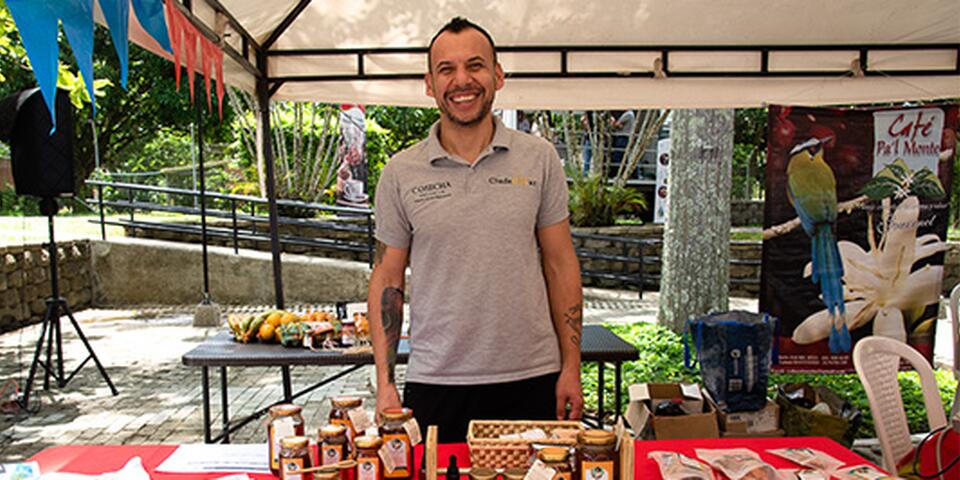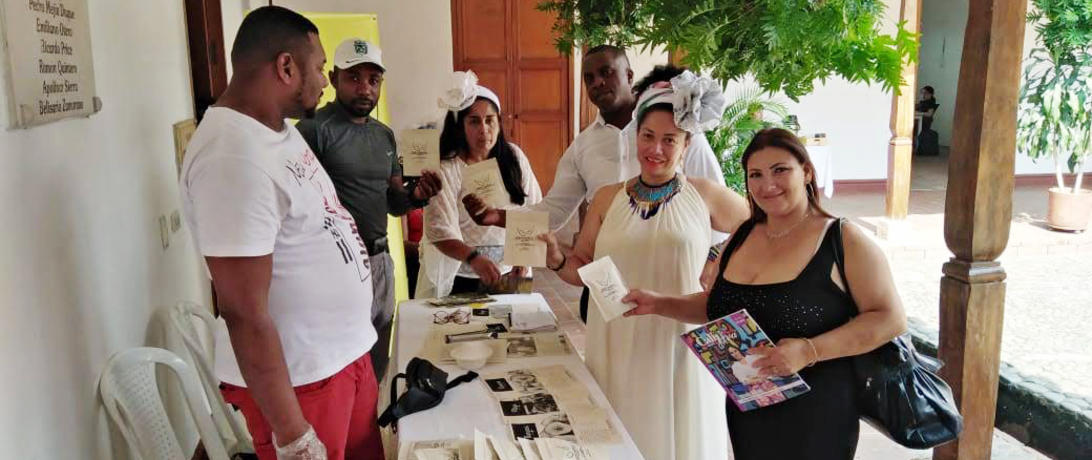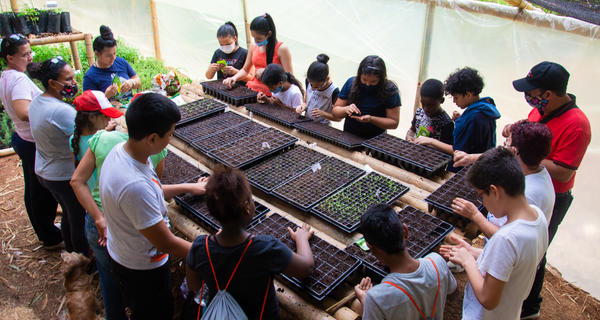Cali’s Rural Alternative School is the first to be developed in an urban area, thanks to the adaptable nature of the collaborative platform model, which can be tailored to meet the specific needs of the communities it serves. Currently, the Cali ERA has two nodes where community and productive projects are developed to support the social and economic reincorporation of its members.
The first node consists of the Ciudad Paz cooperative, a collective with 11 members, including ex-combatants, their families and people from the community. Its objective is to generate processes to strengthen and support productive initiatives of former combatants, especially from the productive chain and commercialization in the city. Whether in farmer markets, sales outlets or social networks, Ciudad Paz takes its brands throughout the country to show the fruits that collaborative work can yield.
Based on training and technical support provided by different partners, Ciudad Paz has established a beekeeping production chain in rural areas surrounding the city. In their dedication to a solidarity economy, they have also established a productive chain in collaboration with an association of rural farmers or “campesinos” and indigenous people from the department. Together, they produce dehydrated fruits that are now being marketed through Ciudad Paz. Furthermore, they created a garment workshop in the eastern part of the city, where they train and employ women heads of household. The workshop produces garments for its own brand called "Rebel" and also caters to the demand from partnerships with the private sector.
The collective vocation has always been an integral part of Ciudad Paz. This is how Johan Niño, representative of the cooperative, explains it, insisting:
“Collective work generates higher levels of solidarity and greater possibilities of establishing processes with the environment, the territory, other communities and the families of their colleagues, neighbors, as well as with the institutions. These productive projects are stronger and more resilient.”

Urban Agriculture
On the other hand, the Cali ERA has actively supported several urban agriculture initiatives aimed at promoting food production in vulnerable communities. These initiatives have used solidarity and collective work as means to enhance the food security of the participants.
Within the Kofán Cabildo, located in the village of Villacarmelo, a multi-ethnic garden that receives the technical support of PASO Colombia was established to grow food and medicinal plants. Its participants are relatives of victims of the armed conflict in Putumayo, who have settled in the city with the purpose of maintaining collective work practices and reestablishing their life projects in peace.
Likewise, youth-led projects have been supported for the creation of urban gardens in marginalized neighborhoods of the city. These initiatives reaped their fruits from urban agriculture in the Siloé neighborhood, and in a network of urban gardens created by young people, women, and victims of the armed conflict who participated in the demonstrations that shocked Colombia in 2021. PASO has provided technical assistance, tools, and accompaniment for the social strengthening of these projects, with the objective of building community ties through food security.
The ERA of Cali has allies such as the Agency for Reincorporation and Normalization (ARN), the Archdiocese of Cali, the Valle del Cauca Peace Secretariat, among other institutions.


